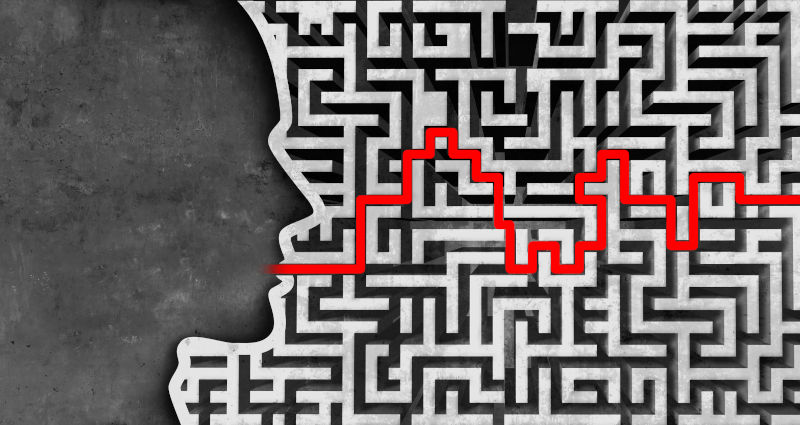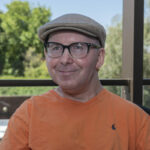Vast technological revolutions have improved people’s lives to a phenomenal degree. Do I dare to think about what my life would be like without these positive developments?
This year, I turned 60 years old. As an individual with Friedreich’s Ataxia, I have been severely impacted by the limitations it places on my physical capabilities. The most notable and devastating damage has been done to my ability to communicate. For example, today I find it impossible to use my keyboard. The only way I can use my keyboard at all is with the help of specific academic support workers, who with training and experience, have learned to understand most of my speech. Even so, my speech dysarthria still hinders my ability to communicate with my support workers, and to dictate what I need to say in my academic or everyday writings.
My academic work is very important to me. This form of engagement has allowed me to give my hearty endorsement to the phrase “the pen is mightier than the sword”. It enables me to contribute my experience and knowledge as someone with a severe physical disability, so that others like me will not be subjected to the same systematic blunders that I have had to go through. As a result, I have tried to develop this virtuous and motivating attitude – as encouraged by this phrase – more and more in all my literary pursuits over the last 11 years.
However, there is always some doubt of whether my writing has an impact beyond discussion of the worsening symptoms of Friedreich’s Ataxia. My disability has not only caused my speech to worsen, but also my sight, so I have little idea of what goes on around me. Similarly, my hearing has also deteriorated and I know this only too well. But my reaction to noise is full of my own peculiarities. For instance, I am sensitive to a lot of noise. I find it very difficult to concentrate on more than one sound at a time, so if there is more than one person talking to me, I will not be able to hear properly anything that is being said.
Many may not realise how the combination of these specific symptoms of Friedreich’s Ataxia can lead to so much difficulty in communicating. To fight this, I must have complete faith in the knowledge that my support workers are telling me the truth at all times. Communication is everything to many individuals with Friedreich’s Ataxia, and that also means trust is vital. If this is taken away from us, we are not left with very much at all. But then there is the hope or faith that things have to improve.
The revolution: How it has affected me as an individual
Since the 90s, we have seen vast technological developments. With the internet, technology has improved people’s lives to a phenomenal degree, and let me say it: that includes me. Do I dare to think about what my life would be like without these positive developments? It has enabled many people to keep making meaningful connections. It has been especially helpful for those people who are unable to communicate physically by themselves. Because of my speech dysarthria, I have relied on my computer to communicate for quite some time now. However, due to my deteriorating mobility, I cannot now use my computer on my own.
Technology has helped me combat the onset of Friedreich Ataxia, as the symptoms become more devastating every year. I have sought advice from well-trained individuals, experts like David Harraway(ComTec) from the communications and assistive technology department who have helped me for the past 20 years. David has always given me friendly and helpful advice over the years, which has been great, and it has also meant that my support workers who have to interpret my dysarthric speech have also benefited. However, as the years go on, this may not be enough. That’s what I worry about, like anyone would I guess. But here I am at this stage, at least, putting these thoughts into words.
Currently, there are many options available to make communicating easier for someone like me. That being said, there are not many that are specifically catered to my individual needs. An example of this is Eye Gaze. Eye Gaze is a communication software that tracks the eye movements of the individual and allows them to type through an onscreen keyboard. For this, you have to be able to focus on the keys to spell out the words and make corrections accordingly. For someone like me, however, this will not work. My Nystagmus is very severe and causes my eyes to frequently move rapidly. It is the root cause of my blindness, and it will never allow me to focus on any keys on the screen.
My dysarthric speech, severely limited vision through nystagmus and difficulty in hearing has also limited the possibility of assistance through medical aids. Friedreich’s Ataxia is a very rare and individualised disability, and as a result it doesn’t fit in with generalised medical theory. Because I depend heavily on my computer to communicate, I was advised to use a software known as Grid 3. It is a basic software that uses very simplistic movements to make it function, and the onscreen keyboard emits lights and sounds to indicate which letters or words you can click on. It uses a switch and sound cues which I found was helpful to me for some time.
Recently, in an effort to improve my speech, I participated in a study with the University of Melbourne. The study involved the use of a tablet to give me speech cues that I would repeat five days a week for four weeks. It was repetitive work, and at times felt tedious. I would also have to listen to recordings of my speech exercises from the previous day. For someone like me, hearing back these recordings was both devastating and motivating. It gave me the strength to want to improve that much more even though it was painful, if not somewhat embarrassing.
My main barriers to communication are Nystagmus and Dysarthria which are the main controlling objects of my disability and are therefore fundamental in the use of Friedreich’s Ataxia.
Many thanks to my friend and colleague Bruce Wearne, who has inspired me greatly in all my work and who has been my prolific ghost writer, my gratitude also extends to my phenomenal team of academic support workers.
Dr. Peter Gibilisco is a Honorary Fellow at the University of Melbourne.
B Bus (Acc) Ph.D. (Melb).
Book: 6 & 1/2 Years on a Dunghill: Life in Specialist Disability Accomodation.

